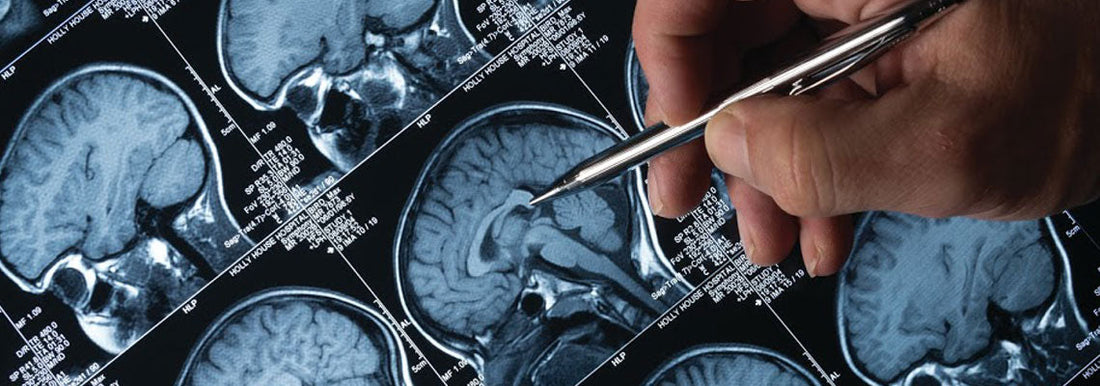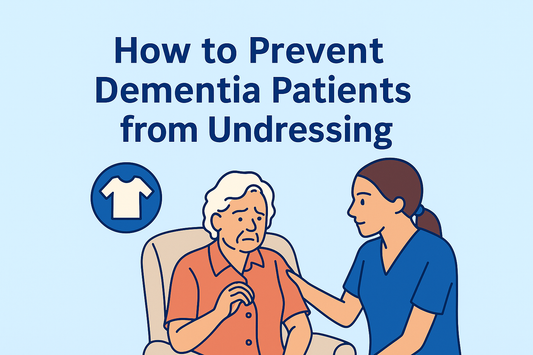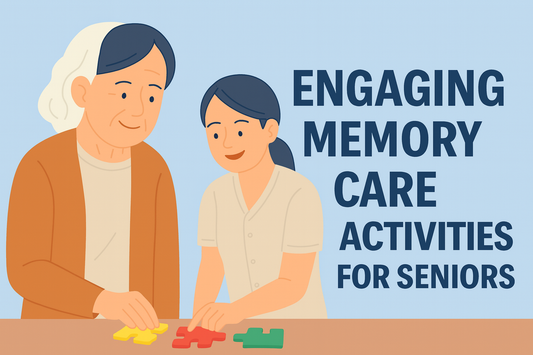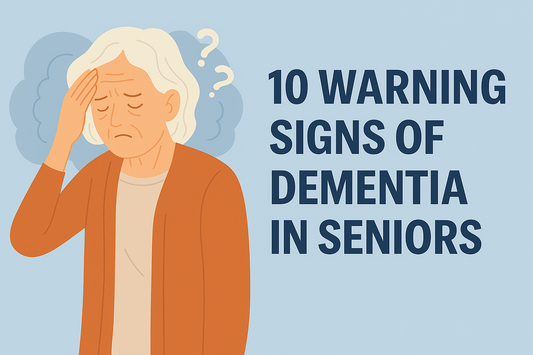
What Really Is the Difference Between Alzheimer & Dementia?
WHAT IS DEMENTIA?
Dementia is a condition in which a person suffers from a decline in cognitive functioning and behavioral abilities. This includes thinking, remembering, and reasoning. If severe enough, it can affect a person’s memory, language skills, visual perception, problem solving, self-management, and the ability to focus and pay attention. There are several types of dementias including, Alzheimer’s, Lewy-Body, vascular dementia, and more.
In general, dementia affects older people. It is estimated that around 5% to 8% of all adults over the age of 65 have some form of dementia, with the percentage doubling every 5 years ager 65. Among people in their 80s, it is estimated that as many as half have some dementia.
However, there are also some forms of dementia that affect people younger than 65, known as early-onset dementia. This can either be genetically induced or due to other external factors. Frontotemporal dementia is one such type that is more common in middle aged adults than older adults.
Most dementias are generally progressive. Symptoms start out slowly and gradually worsen over time. There are also some types of dementia where the symptoms are more constant and can even be cured by treating an underlying medical condition.
QUICK LINKS - TOPICS COVERED:
- WHAT IS DEMENTIA?
- DEMENTIA'S SYMPTOMS
- WHAT IS ALZHEIMER’S?
- ALZHEIMER'S SYMPTOMS
- DEMENTIA VS. ALZHEIMER’S
- FIRST STEP TO A DIAGNOSIS
DEMENTIA'S SYMPTOMS
Although some mild memory and cognitive decline in an elderly person is inevitable, it is not a normal part of aging. The loss of once-healthy neurons in the brain due to lost connection with other brain cells is far greater in people with dementia than the average elderly person.
As there are many types of dementias, it should be noted that the symptoms of dementia can vary greatly. However, dementia being an umbrella term, there are some core mental functions that must be significantly impaired in order to be considered dementia. These include:
- Memory
- Communication and language
- Ability to focus and pay attention
- Reasoning and judgment
- Visual perception
WHAT IS ALZHEIMER’S?
Alzheimer’s, a type of dementia, is a progressive disease of the brain that slowly and over time causes impairment in memory and cognitive functions. It is estimated that around 60-70% of dementia cases are Alzheimer’s.
The exact cause of the disease is unknown. The risk of developing symptoms generally begins after the age of 60 and the risk increases as a person gets older. While there are also instances where individuals younger than 60 do get symptoms of Alzheimer’s, it is a rarer occurrence.
When a person has Alzheimer’s, abnormal protein deposits form plaques and tangles in the brain. This causes connection between brain cells to be lost and cells themselves eventually die. Over time, as more and more brain cells die, a person’s memory, cognitive functions, behavior, etc. begin to decline. In advance cases, the brain shows significant shrinkage.
Treatments and Medications
Diagnosing dementia is difficult. There is no one size-fits-all test to determine if someone has dementia. Diagnosis depends on careful examination of medical history, physical examination, lab tests, and other tools that doctors may use. Pinpointing the exact type of dementia is more difficult as symptoms can be overlapping between different dementias.
With regards to treatments, there is no way to cure most progressive dementias. However, there are drugs that may temporarily improve symptoms and possibly slow down the symptoms. The medications prescribed are usually targeted at symptoms. Therefore, the same medications prescribed for one dementia are sometimes prescribed for other types of dementias.
Doctors may also prescribe other medications such anti-anxiety and sleeping pills to help cope with symptoms such as agitation and difficulty sleeping, respectively.
ALZHEIMER'S SYMPTOMS
The general symptoms of dementia such as a decline in cognitive functions, memory, and communication is present in Alzheimer’s and worsens over time. Other symptoms that are specific to Alzheimer’s include:
- Memory impairment with regards to remembering recent events or conversations.
- Apathy
- Depression
- Impaired judgment
- Disorientation
- Confusion
- Behavioral changes
- Loss of ability to communicate
- Inability to swallow
- Immobility
*the last three symptoms usually appear during the late stages of Alzheimer’s.
The progression of Alzheimer’s is usually classified into three stages, mild, moderate, and severe. During the mild, or early stage, the person may not even realize that they’re experiencing symptoms as they are usually still able to function independently. They may drive, work, and socialize as they always do. However, they may be experiencing memory lapses such as forgetting recent events, familiar words, or locations.
The moderate, or middle stage, is the longest and can last for many years. By now, diagnosis has usually been made and the person with dementia will need greater level of care. While they are still able to accomplish some tasks independently, they will need supervision and assistance with many other things.
At the last stage of progression, the progression of Alzheimer’s is severe. At this point, a person would be completely dependent upon a caregiver for almost everything. They lose their ability to respond to their environment, to communicate, and eventually to control movement.
DEMENTIA VS. ALZHEIMER’S
The key difference to remember about the difference between dementia and Alzheimer’s is that the former is a syndrome while the latter is a disease. A syndrome is a group of symptoms that doesn’t have a definitive diagnosis. Dementia is the umbrella term to describe a set of symptoms while Alzheimer’s is a specific illness that is a type of dementia.
Diagnosis
While Alzheimer’s does account for most dementia cases, there are many other types of dementias, some progressive and uncurable, and some easily curable. When a person experiences a decline in their cognitive functioning and behavioral abilities, doctors are likely to call it dementia before doing further tests to determine the exact illness that the person has.
Some causes of dementia include:
-
Degenerative Neurological Diseases
These include Alzheimer’s disease, Parkinson’s disease, Huntington’s disease, and some types of multiple sclerosis. These diseases progressively worsen over time and have no known cure.
-
Vascular Disorders
These are disorders that affect the blood circulation in your brain. For example, a blood clot or stroke in the brain can a type of dementia known as vascular dementia.
-
Traumatic Brain Injuries
Injuries caused by car accidents, falls, concussions, etc. Nature of the dementia varies depending on the type and location of the head injury. Usually, this type of dementia does not worsen over time and has the possibility for improvement or complete cure.
-
Long-term Alcohol and Drug Use
Nerve cells can be damaged, inducing symptoms of dementia. With proper rehabilitation and sobriety, individuals with this kind of dementia can make partial or even full recoveries.
-
Infection of the Central Nervous System
These include meningitis, HIV, and Creutzfeldt-Jakob disease. This type of dementia is often curable though medications that treat the underlying condition if diagnosed early.
-
Vitamin Deficiencies
Studies have found a link between vitamin B12 deficiency and dementia.
-
Certain Types of Hydrocephalus
A buildup of fluid in the brain can induce symptoms of dementia.
Life expectancy
The life expectancy for someone with dementia can vary a lot, from just a couple of years to more than two decades. It mainly depends on the type of dementia they are diagnosed with along with the person’s age and health. Most studies indicate that the average life expectancy after diagnosis is around 10 years. However, this should not be accepted as a fact, but only a guidance.
Alzheimer’s, which accounts for most dementia cases, generally has a life expectancy of 8 to 12 years from diagnosis. In addition, if the person is younger at the time of diagnosis, the progression of the symptoms is slower, thereby giving the person a higher life expectancy. A person’s health level also has a similar impact. A fit and healthy person will likely live longer than someone who’s health is poor.
The life expectancies for other types of dementias such as vascular dementia, Lewy-Body dementia, and frontotemporal dementia are 4 years, 5-7 years, and 8 years, respectively. It should also be noted that those diagnosed with young-onset dementia have a lower life expectancy. this is most likely because they are often diagnosed when their condition is much more advanced that the disease seems to progress more quickly than it actually does.
Dementias that are caused by other curable, underlying causes don’t affect life expectancy much. Once the underlying cause is diagnosed and the appropriate medical actions are taken, the patient can usually return to their normal life.
Aging
As mentioned previously, most elderly people experience some amount of memory loss and cognitive decline. This is not the same thing as dementia. It is the natural process of aging known as ‘age-associated memory impairment. It is sometimes referred to as senile dementia. Around 40% of people over the age of 65 experience this type of memory loss. Alzheimer’s and other dementias, which are considered brain diseases, cause much more significant memory loss. The mental decline in such cases doesn’t get progressively worse. It tends to stay more levelled after a drop.
Hereditary
Contrary to popular belief, a majority of dementia is not hereditary. There may be genetic links in certain rare types of dementias, but these usually account for a very small percentage of all dementia cases. Similarly, Alzheimer’s too isn’t usually hereditary. However, early-onset Alzheimer’s can possibly be hereditary due to a faulty gene being passed down.
With vascular dementia, most cases are not inherited. However, the underlying health issues that contribute to the condition may be passed on genetically from one generation to the next. Frontotemporal dementia (FTD) on the other hand, is a type of dementia that can be inherited. Although the occurrence of FTD is rarer compared to Alzheimer’s or vascular dementia, around 40% of FTD cases is estimated to be hereditary.
FIRST STEP TO A DIAGNOSIS
If you notice a loved one or close friend experience dementia-like symptoms, it is very important to consult with a doctor without delay. This could be their primary physician. Once the relevant tests are done, the doctor will be able to tell more accurately if your loved one’s symptoms are indeed due to dementia and if so, what type. With an accurate first diagnosis, your loved one and their doctor can discuss how they can proceed with regards to medication and other care.



